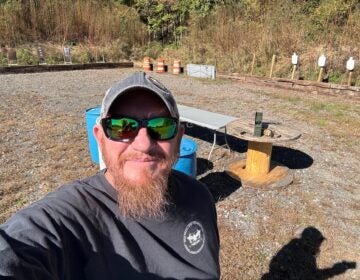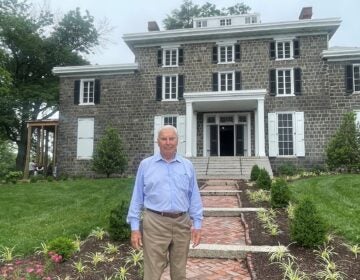Judge reviews evidence and testimony in sex abuse case against Delaware pediatrician
A judge continues his review of testimony and evidence presented in the one-day trial of Earl Bradley, the former Delaware pediatrician charged with sexually abusing scores of his young patients.
After Bradley waived his right to a jury trial on May 9th, the prosecution and defense set in motion their strategies that played out Tuesday in Sussex County Superior Court in Georgetown.
The state presented two witnesses: state police detectives who testified about the investigation leading to Bradley’s arrest in December 2009, the massive community outreach effort to identify victims and potential victims, and the graphic details of sex crimes captured on digital video by Bradley himself.
Bradley’s public defenders, meanwhile, presented no rebuttal and no witnesses. Their focus is on the appeal strategy: to challenge the admissability of video evidence seized from Bradley’s office compound, BayBees Pediatrics in Lewes. They contend the evidence was taken from two buildings at the office complex without the proper search warrants.
Widener University Law School Professor Emeritus Tom Reed says a jury trial would have played out much differently.
“If there’s a jury, a jury doesn’t know anything about the case,” Reed says. “The jury must be educated, and be educated by the admission of evidence. That evidence would include everything the state had.”
Although Judge William Carpenter may very well find Bradley guilty and sentence him to life in prison, the potential that his earlier decision to allow the evidence could be overturned would trigger an entirely new phase: an appeal to the Delaware Supreme Court.
Reed says there are advantages and disadvantages to a bench trial, instead of a jury trial.
“Whenever you waive a jury trial, you always risk the possibility of one hung juror saving your client from conviction,” Reed says. He also believes that Judge Carpenter will go further than a typical juror who is only asked to vote “guilty” or “not guilty.”
“Since it is a bench trial and there will be a judicial review by the Supreme Court of Delaware, I’m sure he will want to set out the reasons and basis for a decision,” Reed says.
Weeks before Tuesday’s trial, Judge Carpenter issued an opinion when he ruled that the video evidence seized from Bradley’s offices were admissable as evidence.
WHYY is your source for fact-based, in-depth journalism and information. As a nonprofit organization, we rely on financial support from readers like you. Please give today.




